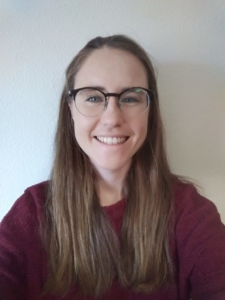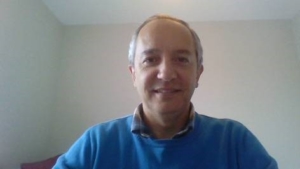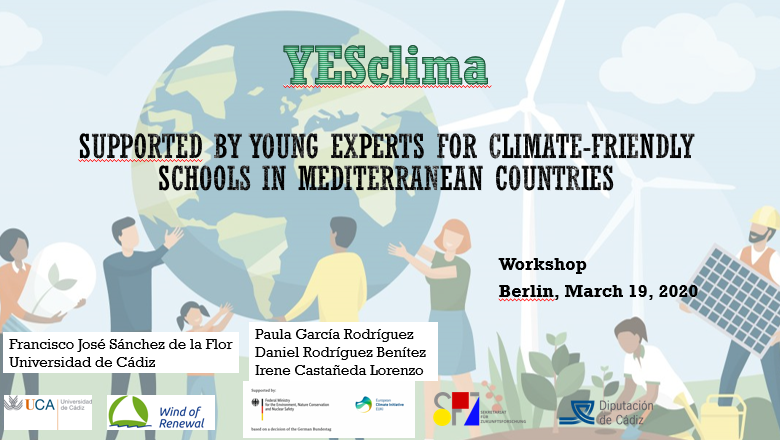
The EUKI – YESclima project trains young experts in energy audits. In Andalusia (Spain) and Athens (Greece), students gain experience and are thus prepared for the labour market in regions with high youth unemployment. At the same time, they help municipalities to reduce energy costs in schools. This saves costs and protects the climate.
The EUKI project YESclima offers practical training for students on energy audits in buildings. Due to corona virus, the project work is now taking place online only. But there are also opportunities for the project and climate action in the current development, say project manager Francisco José Sánchez de la Flor and the participating student of Industrial Engineering Paula García Rodríguez. They also provided us with the presentation that had been prepared for the cancelled EUKI networking conference in March.
What impact does the corona crisis have on the work in the YESclima project?

Paula García Rodríguez is student at the University of Cádiz.
Photo: PaulaGarcía Rodríguez
Paula: Fortunately, our project has been running for two months already and we have already visited three local schools. Especially the first visit was important to gather experience and data. The rest of the project is now digital via video chat, which works well. Unfortunately, we had to shorten our study trip to Berlin by one week and to return to Spain. The students from the project in Greece were more affected. Their project has only started a month ago and they have not been able to visit schools for their audits yet. They may have to adjust their project goals now.
Is there a risk that climate action will disappear from the focus of public opinion and the project work will be affected?
Francisco: Of course, it is possible that the focus will be more on economic issues now. However, our project and the students involved will help saving energy in the heating or – something which in the Mediterranean can be even more important – in the cooling of spaces. A lower electricity bill is in the interest of public institutions, especially during an economic crisis. Nevertheless, it is currently difficult to predict what the long-term economic and political consequences will be.

Francisco José Sánchez de la Flor is coordinator of the YESclima project and professor at the University of Cádiz.
Francisco: Just last week we had a video training on the topic of “entrepreneurship”. So the students also learn about ways in which they can create jobs themselves. It will certainly be difficult for the students in the future and unemployment will rise sharply. But we are just as much affected as all other sectors.
How does the project proceed now?
Paula: For us students this is the final project. It would be good if we could visit schools again in May or June, but we have all the information we need to continue working on the project.
Francisco: Climate action, the protection of the environmental and the reduction of energy consumption in buildings will certainly remain important issues in the European Union. We hope that we can put our students in a good starting position on the job market. The project work continues in the video conferences with the same enthusiasm as before and the students learn all the more in the online trainings. After the Corona period we will be able to present our excellent results to the academic community.
Project Presentation

